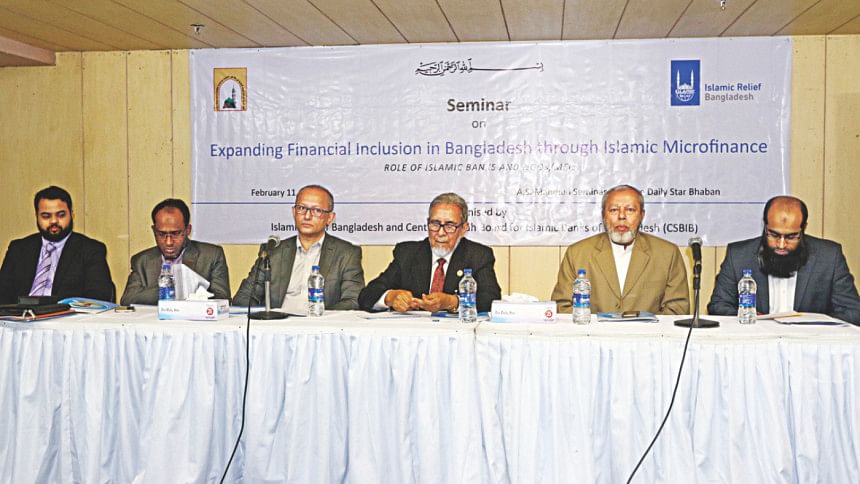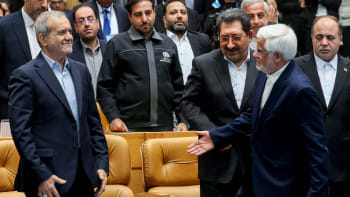Islamic microfinance to deepen financial inclusion

Islamic microfinance can be used to bring marginal people under the banking umbrella as its interest-free concept would appeal to the segment, a banker said yesterday.
“It would play into their sentiment,” said Rumee A Hossain, chairman of the executive committee of Bank Asia, which is gearing to roll out full-fledged Islamic finance activities.
Hossain's comments came at a seminar -- expanding financial inclusion in Bangladesh through Islamic microfinance -- organised by the Islamic Relief, Bangladesh (IRB) and the Central Shariah Board for Islamic Banks of Bangladesh (CSBIB) at The Daily Star Centre in Dhaka.
Mohammad Thoufiqul Islam, a professor at the Dhaka University's management department, presented a report he authored on Islamic finance at the event.
Shariah-based banking is gradually rising in popularity in Bangladesh, the study found.
Currently, seven banks are operating full-fledged Islamic banking activities, eight banks have dedicated Islamic banking branches and five have Islamic banking windows.
One non-bank financial institution, Islamic Finance and Investment Limited, is conducting Islamic banking.
Of the banks that offer Shariah-compliant products and services, Exim, Islami, Social Islami and Shahjalal Islami also have Islamic microfinance programmes.
As of 2015, Exim provided microfinance of Tk 180 crore, Islami Bank Tk 32,000 crore, Social Islami over Tk 12 crore and Shahjalal Bank Tk 475 crore.
The recovery rate of Islamic microfinance loans is 99.2 percent, according to the study.
Those who had taken Islamic microfinance loans of less than Tk 20,000 in the past are now taking more than Tk 1 lakh loans, it said.
The gradual improvement of the economic status of Islamic microfinance clients suggests that it can be a gateway of poverty alleviation, Islam said.
The study cited the case of 36-year-old Morsheda from Banchharampur upazila as a case of the efficacy of Islamic microfinance to alleviate poverty. The sole breadwinner of her family of four, Morsheda was struggling to make ends meet until she took out a Tk 15,000 loan from the Social Safety Net Foundation, a shariah-based microfinance institution.
With the loan she purchased a calf that she sold off after a couple of months for Tk 35,000. With her windfall she opened a tea stall and she never looked back since.
Today, she is comfortably running her family with her monthly income of Tk 13,000 and has plans to expand her business further.
Of the 8 million microcredit borrowers in the country, only 1 percent is under Islamic microfinance, according to the study.
“Many microfinance institutions have good products but they cannot convert them into shariah-compliant ones,” Islam added.
A shariah advisory committee will be formed to develop a guideline for Islamic microfinance by 2017, said Enamul Haque Sarkar, programme manager of IRB.
“Islamic banking is a must for the country's development,” said M Azizul Haq, chairman of the executive committee of CSBIB.
“Islamic banks did not even fail during recession when other banks did. They have financial resiliency,” he added.
Shabel Firuz, country director of IRB, was also present.

 For all latest news, follow The Daily Star's Google News channel.
For all latest news, follow The Daily Star's Google News channel. 



Comments